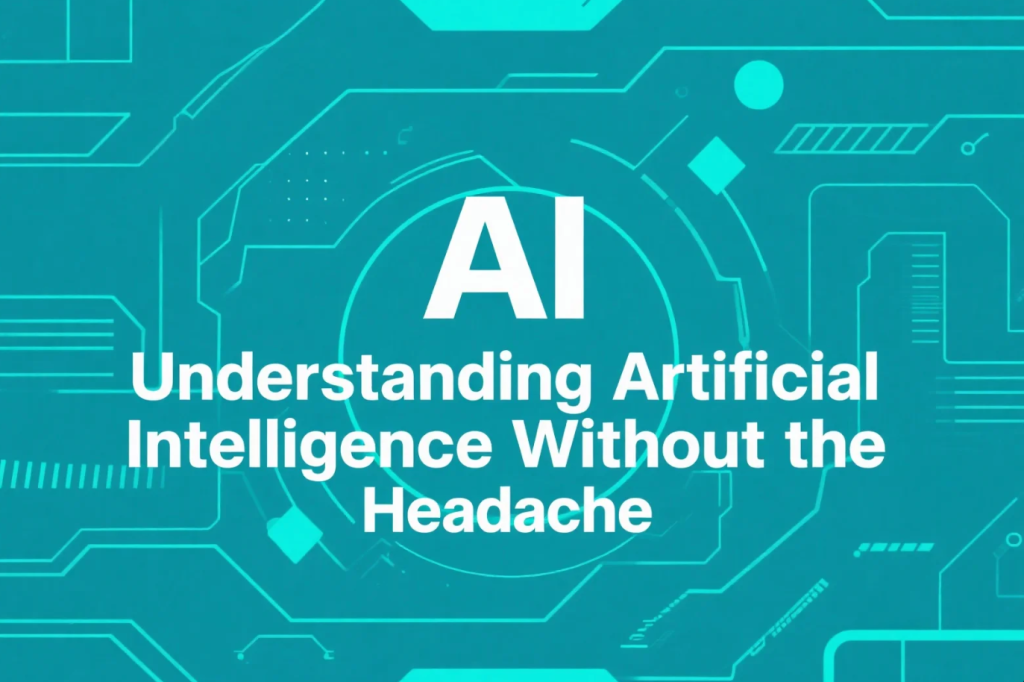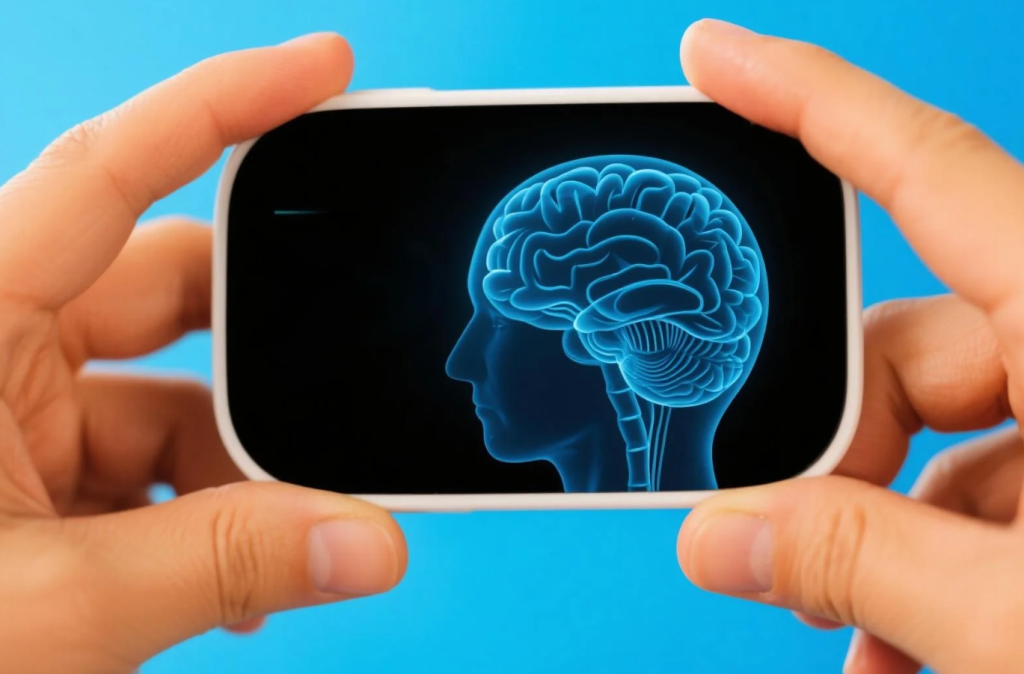Why AI Suddenly Matters to Everyone
Artificial Intelligence, or AI, has exploded into public consciousness like a viral meme that refuses to die. Once a term buried in the vocabulary of scientists and sci-fi fans, AI is now everywhere—from your phone’s autocorrect to your favorite streaming platform recommending what to binge next. But what exactly is AI? And more importantly, do you really need a PhD in computer science to understand it?
Absolutely not.
This guide is crafted for absolute beginners—those who are curious but not necessarily technical. You’ll walk away with a solid understanding of what AI is, how it affects your life, and why you should care (even if your job doesn’t involve robots or algorithms).
What Is AI, Really?
Let’s start with a myth-busting definition. AI isn’t a robot that wants to take over the world—at least, not yet.
Artificial Intelligence refers to machines or software systems that can perform tasks typically requiring human intelligence. These tasks include learning from experience, understanding language, recognizing patterns, solving problems, and making decisions.
In simple terms, AI is about creating smart systems that can do things like:
- Chat like a human (hello, chatbots!)
- Identify faces in photos (think Facebook’s tagging feature)
- Translate languages (bonjour, Google Translate!)
- Predict what you want to buy next (yes, Amazon knows)
These systems don’t “think” like humans. Instead, they analyze data and follow rules—often millions of them at once.
The Three Levels of AI You Should Know
Understanding AI becomes a lot less intimidating once you know it’s categorized into three types:
- Narrow AI (Weak AI):
This is the only kind of AI we have right now. It’s designed to do a single task extremely well—like recognizing faces or filtering spam emails. Your Netflix recommendation engine is Narrow AI. So is Siri. - General AI (Strong AI):
This hypothetical AI can perform any intellectual task a human can. It doesn’t exist yet, but researchers dream of building it. Think of an AI that could write a novel, solve a legal case, and cook dinner—all in one day. - Superintelligent AI:
This is the “Hollywood” AI—the kind smarter than humans. It could potentially redesign itself to become more intelligent and might make humans obsolete. Relax. We’re not there yet (and possibly never will be).
How AI Actually Works (Without the Math)
Here’s a no-jargon explanation.
Most modern AI relies on a technique called machine learning, where you “train” a computer system using data. For example:
- Want AI to detect spam? Feed it thousands of emails marked spam and not spam.
- Want it to recognize cats in pictures? Show it millions of cat photos.
Over time, the system “learns” to identify patterns and make predictions. It’s not magic—just math and massive amounts of data.
Some advanced AI also uses neural networks, loosely inspired by the human brain. These networks allow AI to do more complex things, like understanding spoken language or generating human-like text (yes, like this article).
AI in Your Daily Life: You’re Already Using It
You might think AI is reserved for tech companies and research labs. Surprise—it’s already in your pocket, kitchen, car, and even your shopping cart.
Here’s where AI shows up in your everyday life:
- Smartphones: Voice assistants, photo categorization, autocorrect.
- Streaming Platforms: AI helps Netflix, YouTube, and Spotify recommend content.
- Shopping: Amazon uses AI to personalize what you see.
- Email: Spam filters and smart replies.
- Navigation: Google Maps uses AI to predict traffic and reroute you.
- Smart Homes: Thermostats, doorbells, and fridges that learn your habits.
Whether you notice it or not, AI is quietly making life more convenient—or creepier, depending on your perspective.
Common Myths About AI (And the Truths Behind Them)
Let’s debunk some of the most persistent myths about AI:
- Myth 1: AI will take all the jobs.
Reality: AI will replace some jobs, especially repetitive ones. But it will also create new ones—like AI ethicists, prompt engineers, and data trainers. - Myth 2: AI understands humans.
Reality: AI doesn’t “understand” anything. It detects patterns. When a chatbot gives you a great answer, it’s matching input to statistical probabilities, not experiencing insight. - Myth 3: AI is objective.
Reality: AI can inherit human bias. If you train it on biased data, it will reflect those biases—sometimes with harmful consequences. - Myth 4: AI will become conscious.
Reality: There’s no evidence AI has or will have consciousness. It’s just executing code, no matter how realistic it seems.

Is AI Safe? Ethical Questions You Should Be Asking
As powerful as AI is, it raises some serious ethical and social concerns:
- Bias and discrimination: AI trained on biased data can make unfair decisions in hiring, policing, or lending.
- Surveillance: Facial recognition AI can be misused by governments or corporations to track individuals.
- Misinformation: AI can generate fake news, deepfakes, and more. Think twice before trusting your screen.
- Autonomous weapons: Yes, AI-powered weapons are being developed. Scary, right?
That’s why AI ethics is a growing field. Many experts are working to ensure AI is fair, accountable, and beneficial to all—not just tech giants.
AI Careers: Do You Need to Code to Get Involved?
Not necessarily.
While coding helps, there are many non-technical roles in the AI field, such as:
- AI Policy Analyst
- Product Manager (AI tools)
- User Experience Designer for AI interfaces
- AI Ethics Specialist
- AI Content Trainer (helping systems learn human behavior)
If you’re excited about AI but don’t know how to code, there’s still a place for you. Learning basic concepts, reading AI news, and taking beginner-friendly courses (like on Coursera or Khan Academy) can be great starts.
How to Stay Updated Without Getting Overwhelmed
The AI space evolves fast. To keep up without drowning in jargon:
- Follow trusted sources like MIT Technology Review, The Verge, or BBC Tech.
- Subscribe to beginner-friendly newsletters like The Batch by deeplearning.ai.
- Watch explainers on YouTube (try channels like Two Minute Papers or ColdFusion).
- Join discussions on Reddit’s r/MachineLearning or r/Artificial.
Just 10 minutes a day is enough to stay informed.
Why Understanding AI Matters—Now More Than Ever
You don’t need to become an AI engineer to understand the basics of how these systems work. As AI becomes embedded into every part of our lives—from healthcare to education, banking to entertainment—understanding it isn’t just a techie’s hobby.
It’s becoming a life skill.
The more you understand AI, the more empowered you’ll be to use it wisely, spot its weaknesses, and even help shape how it evolves.
Because in the future, it’s not just the machines that need to be smart—it’s us too.


